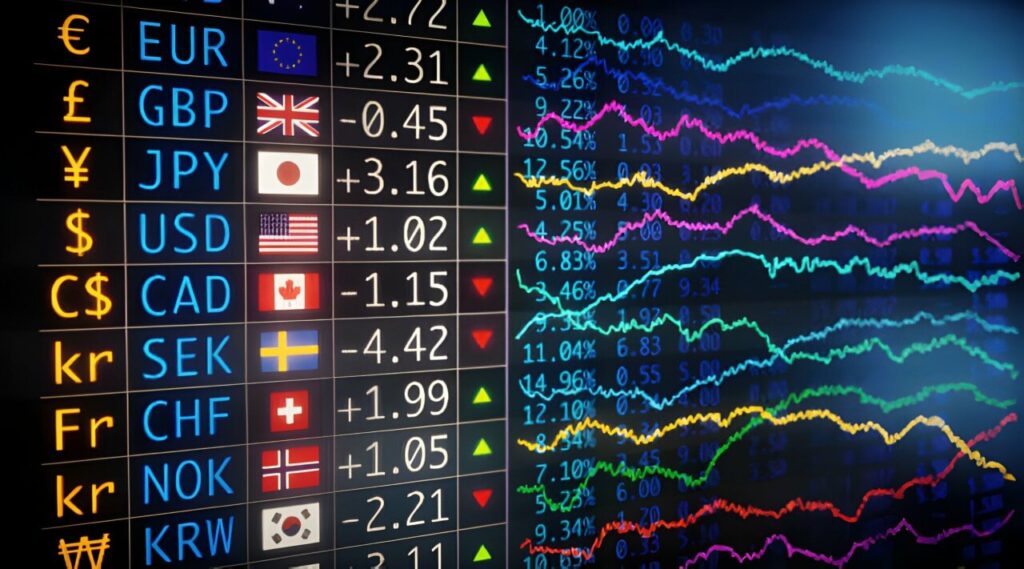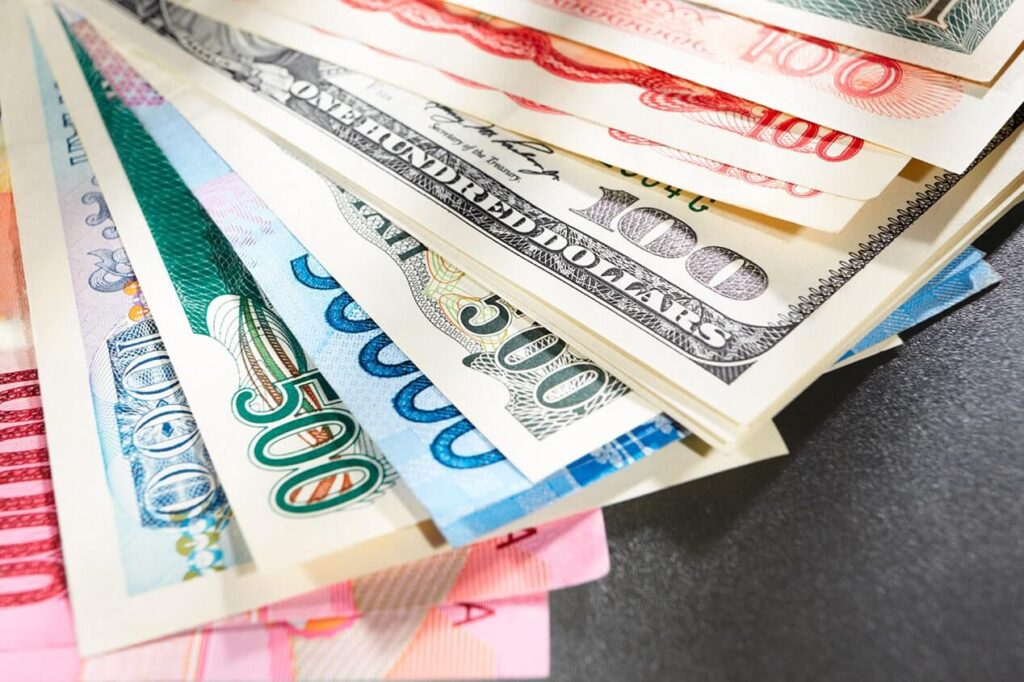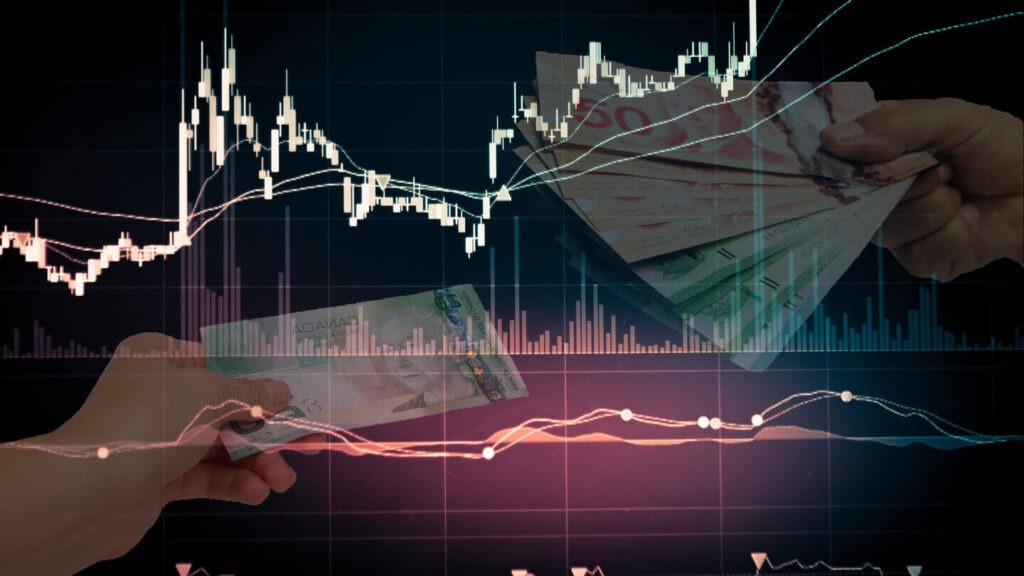How Currency Exchange Rates Work: A Beginner’s Guide
The currency exchange rates indicate the value of a country’s official currency relative to another country’s currency. The main factor in determining the value of exchange rates is the balance of supply and demand, which can be volatile.
Although there are many factors that determine the value of exchange rates, the main factors are generally interest rates, inflation, macroeconomic data, and political developments.
While some exchange rates may be fixed due to local economic policies, some are called floating. In fixed currency exchange rates policies, governments usually intervene in interest rates. However, floating exchange rates are shaped according to the supply-demand balance in the markets.
Many important areas such as global trade processes, investment projects, and tourism activities are directly affected by currency exchange rates. Today, developed countries usually have more valuable exchange rates.
However, in countries where politically and economically wrong decisions are made, where there is no stability, high inflation, and uncertainty, currency exchange rates are usually worthless.
For someone with a beginner level of financial literacy, it is possible to summarize exchange rates as a summary of the financial success of that country.
In other words, if a country’s local currency is valuable, we can understand that the financial policies and political management approach in that country are successful.
However, in countries where the value of the local currency decreases and inflation increases, the quality of the decisions taken should unfortunately be questioned.
What Are Currency Exchange Rates And How Do They Work?

The exchange rate is the ratio of a specific currency to the currency used in another country. The value of currency exchange rates is usually shaped by the supply and demand balance in the markets.
For example, the Dollar and Euro, which are the most reliable and stable fiat currencies today, can be more valuable than other currencies. Local currencies of developed countries can also be more valuable.
For example, while the Dollar is a stable fiat currency valid all over the world, the currencies or exchange rates of African countries are less valuable. Markets where currency exchange rates are evaluated are called Foreign Exchange or simply Forex.
Exchange rate markets are the most participant-involved markets in today’s world. They are known as the most liquid markets in the financial ecosystem. Businesses, individuals, and states trade on these markets and develop policies to keep or increase the value of their exchange rates constant.
While currency exchange rates are generally determined according to the supply and demand balance that occurs depending on free market conditions, some exchange rates are kept at a fixed value with the interventions of central banks.
Key Factors That Influence Currency Exchange Rates
Many factors shape the value of currency exchange rates in the modern world. The balance of supply and demand is the largest factor.
As the demand for a currency increases, its value increases. One of the main reasons why the GBP or Great Britain Pound is valuable is the high demand for this currency.
The main reason why the dollar is less valuable than the GBP is the balance of high demand and high supply.
Another basic factor is interest rates. Governments are responsible for determining optimum interest rates through central banks. In countries where high interest rates are offered, the main motivation is to attract foreign investors to the country.
Another important factor that shapes the value of exchange rates is inflation rates. If inflation is high in a country, the value of that currency decreases, and if it does not, it increases. Central banks develop strategies to reduce inflation rates.
In addition to these basic factors, economic growth rates, political and economic stability, and current developments also directly affect the value of currency exchange rates.
In addition to these key factors, the number of fundamental factors that directly affect exchange rates will increase in the future with the spread of digital asset classes such as cryptocurrencies offered by blockchain technologies.
Additionally, AI tools make it easier for countries to improve their market analysis, creating a more competitive market. For this reason, it can be expected that artificial intelligence will be mentioned among the fundamental factors in the near future, if not today.
How To Read And Interpret Currency Exchange Rates?
Although the values of exchange rates are known even by individuals with low financial literacy, reading and interpreting currency exchange rates is not a skill that everyone has. The fact that EUR/USD is equal to 1.1 proves that the Euro is more valuable than the US Dollar.
In an exchange rate, the base currency is written first, then the quote currency. In the EUR/USD example, while the Euro is the base currency, the USD is the quoted currency. The Euro is more in demand than the US Dollar as the official currency used by the European Union countries.
It is more difficult for individuals with poor financial literacy or who do not follow political and global developments to correctly analyze or interpret currency exchange rates.
However, it is more possible for investors who are familiar with the exchange rate market to create a future perspective on exchange rates.
The Role Of Central Banks In Currency Exchange Rates
One of the main factors in determining the value of exchange rates is central bank decisions and strategies. Central banks may have different operating mechanisms in different countries.
However, central banks generally affect the values of currency exchange rates with interest rates and foreign exchange interventions. The most common central bank strategy is changing interest rates.
While it is likely to be a more attractive marketplace for foreign investors when a joint strategy is developed with political authorities and higher interest rates are offered, a decrease in interest rates can often cause the value of the local currency to decrease.
Central banks can also manage the values of currency exchange rates with foreign exchange interventions and monetary policies. In many countries, central banks try to reduce inflation rates by buying and selling foreign currency.
One of the responsibilities of central banks is money supply policies, and these policies directly affect the value of the local currency. While it is necessary to increase the money supply in some periods, reducing the money supply in other periods may be sufficient to prevent financial crises.
How Inflation Affects Currency Exchange Rates?

One of the main factors that shape the value of currency exchange rates is inflation rates. Inflation is the mathematical expression of the purchasing power of a country’s currency and directly affects the exchange rate market.
If inflation rates in a country are lower than expected, it can be claimed that the country’s currency has gained value. Because purchasing power is usually high in developed countries with low inflation rates.
However, if inflation rates in a country are higher than expected, it can be claimed that the country’s currency has lost value. Because purchasing power is usually low in developing countries with high inflation rates, this can cause foreign investors to stay away.
The Impact Of Global Events On Currency Exchange Rates
Today’s rapidly changing agenda and global developments also directly affect exchange rates. Exchange rates are very sensitive to global developments, and this is why all exchange rates are affected in a possible global crisis.
Global events that can shape the values of currency exchange rates can be wars and geopolitical crises. For example, when there was a war between Russia and Ukraine, both countries experienced stability problems in their currencies.
In such cases, many people turn to more stable and liquid currencies such as the US dollar and the Swiss franc. Other global events that have a direct, albeit temporary, impact on exchange rates are natural disasters and epidemics.
The pandemic period in 2020 can be given as a great example of this. Many countries had a negative currency exchange rate during the COVID-19 pandemic, and the official currencies of many countries experienced a decrease in value.
Fixed Vs. Floating Currency Exchange Rates: What’s The Difference?
Currency exchange rates can be in two main forms: fixed and floating. The main difference between fixed and floating exchange rates is the interventions of governments or central banks.
In a fixed exchange rate system, the central bank determines interest rates in light of the government’s policies, and the value of the local currency is kept constant.
China can be remembered as a good example of a fixed currency exchange rate system. China, one of the most developed countries in the world, has maintained a fixed exchange rate system for a long time and has maintained the value of CNY – USD.
Another popular exchange rate system is the floating exchange rate system. In this exchange rate system, market conditions usually have a direct effect, and central bank and government intervention are less. The best example of a floating exchange rate system can be the US Dollar or the Euro.
The US Federal Reserve does not intervene in interest rates to keep the value of the dollar fixed and develops strategies according to free market conditions. It may be necessary to use different exchange rate systems according to different local conditions and markets.
Almost every official country evaluates these two currency exchange rate systems to increase the value of its local currency.
How To Use Currency Exchange Rates For International Trade?
Today, the increase in the number of e-commerce platforms and the ability to manage asset transfer processes completely digitally has also enabled the development of global trade relations. International trade ecosystems are directly affected by currency exchange rates.
If a country’s currency loses value, the number of export projects generally increases and foreigners can buy goods cheaper. However, in countries that have managed to increase the value of their local currency thanks to the right financial moves, imports usually become cheaper while the export rate gradually decreases.
For example, if a country’s currency loses value, I can claim that export processes in that country will be more competitive.
The Relationship Between Interest Rates And Currency Exchange Rates

Interest rates are one of the main factors that directly affect the value of currency exchange rates. Optimum interest rates may change according to governments.
When interest rates enter an upward trend, the possibility of investors from outside the country entering that country’s market begins to increase and the value of the local currency gradually increases.
However, in countries that reduce interest rates through the central bank, the local currency gradually loses value. Because foreign investors want to maintain their financial stability by turning to more attractive interest rates.
Generally, in countries with high inflation rates and high unemployment rates, central banks are forced to reduce interest rates due to government policies. However, interest rates should be determined at an optimum level. Otherwise, it will be impossible to prevent a financial crisis.
Future Trends In Currency Exchange Rates And Market Predictions
No matter how advanced your financial literacy is, it is impossible to make definitive predictions of exchange rates.
However, when past market data is analyzed, strategies with a high probability of being true can be determined. The future of currency exchange rates may change according to local market conditions.
In recent years, the US Federal Reserve’s interest rate hike decisions have directly affected the entire world. In addition, thanks to the spread of cryptocurrencies, which are digital currencies, cryptocurrencies will be one of the main factors determining the value of exchange rates in the future.
In addition, the development of artificial intelligence technologies and the fact that they offer new solutions and tools make strategies more successful in determining the value of exchange rates.
Developments in artificial intelligence technologies and data analysis seem to radically change the future of exchange rate values.
Countries that have already developed an adaptation process with such innovative innovations – many countries have now adopted official cryptocurrencies – will be able to maintain their financial stability in the future.
The number of factors affecting currency exchange rates in the future will also increase due to the increase in digitalization and globalization.
While the strategies of central banks and governments have a direct impact today, in the future, perhaps the spread of decentralized financial ecosystems will destroy the fixed currency exchange rate system and the supply-demand balance in free market conditions will be the biggest determinant.
Although this picture shows a more equitable world, it can also cause chaos full of economic crises. It is difficult to predict this with 100% certainty right now.
See you in the next post,
Anil UZUN
